
OR
Why amendment failed
Published On: August 29, 2017 01:30 AM NPT By: Mahabir Paudyal | @mahabirpaudyal

A constitution amendment bill needs to be judged on whether it is welcomed by domestic constituencies, not on whether it gives ‘face saver’ to outsiders.
Because the main opposition CPN-UML—the party that is bent on keeping Madhesis suppressed and has no regard for sacred cause of inclusion—voted against it. If UML had supported the amendment bill, Rastriya Prajatantra Party (RPP) would come along. The bill would pass and it would ensure wellbeing of Madhesis. Nepal would have become an inclusive state.
For the next few months—or at least until November 26 when provincial and federal parliament elections have been scheduled—Nepali Congress, Maoist Center, Rastriya Janata Party Nepal (RJPN) and, probably, certain section of Indian establishment—will sell and promote this narrative home and abroad.
Political parties and a section of Nepali intelligentsia have often resorted to deliberate misreading of events to prove their points.
For their part, CPN-UML and RPP will also present rejection of the bill as achievement. If this ‘anti-national’ bill had been endorsed by the parliament, they will most likely argue, it would have endangered our national integrity and national independence even more.
In India—thanks to Prime Minister Sher Bahadur Deuba’s follies—the debate may be revived. When our own prime minister states in public that constitution through which he became the prime minister is flawed and he will push it again with two third majorities, the Indian lobby that worked to actively misinform the establishment and Indian public about Nepal’s constitution during the blockade may feel encouraged to return to their old arguments. After all, Deuba has provided them a good reason.
As there are election times, political parties will use all tricks to vilify their rivals and project each other as enemies, to hide their incompetence and to appeal to their electoral constituencies.
Expect acrimonious debates for and against rejection of constitution amendment bill for the next few months.
Flawed content
Frankly, the content of the amendment bill was flawed. Neither the RJPN, which had been claiming this amendment would not address their demands at all, nor Nepali Congress and Maoist Center, were content with the bill. “The amendment bill had nothing to offer to Madhesis, Janajatis, Tharus, women, and Muslims,” wrote Manish Suman, General Secretary of RJPN, in Naya Patrika recently, echoing what Madhesi leaders used to say about the constitution. Yet Suman then contradicts himself, by saying that if the bill (that “had nothing to offer”) had been passed “it would establish atmiyata (soul relation) of Madhesis with the constitution”. Doubtlessly, Suman is making an overtly political statement here but there is no tinge of regret in leaders who voted in favor of the bill for its rejection. Silently, Congress and Maoist Center must be thanking UML for aborting the bill and thus giving them a ‘face saver’.
Since the amendment bill was registered in the parliament in April, no political party discussed its merits, if any. They failed to explain how passage of the bill would empower Madhesis and Janajatis. For example, how would including all mother tongues of Nepal in the annex of the constitution, which already recognizes “all mother tongues spoken in Nepal” as “national languages”, promote and preserve Maithili and Bhojpuri languages or how not doing so would make these languages inferior to others? Nobody told us. It is intriguing why this particular clause had to be inserted in the constitution.
The secret contention was that amendment on language was to give Hindi official status. They refrained from saying it in public fearing adverse reaction. If those seeking amendment on language had spoken for dignified space for, say Maithili language—the ancient language of Nepal—or even Bhojpuri, public opinion would build in favor of amendment on language.
Another unwarranted argument was in favor of depriving local executives from becoming part of Electoral College. I wonder how this would make Madhesi people more empowered.
The bill also proposed to create new category of “marital naturalized citizens”. Other than explaining how one acquires this citizenship—through marital ties—this phrase actually means nothing. Foreign women married to Nepalis are acquiring naturalized citizenships under existing legal provision anyway.
Major emphasis was on allowing federal parliament to decide on boundaries of provinces without approval of affected provinces. This is rarely practiced in other federal countries. The ruling parties and RJPN undermined the parliament’s arithmetic. Not only UML but many lawmakers from RPP had vowed to vote against the bill.
Passage to India
It is frustrating to link fallout of domestic affairs with India. But Nepali leaders sometimes so openly look up to Indian leaders and bureaucrats for advice that one cannot dissociate the link between the two. India invariably comes into the picture.
Like it or not, the whole exercise of amendment, as political analyst Puranjan Acharya told Himal last month, was centered on appeasing India rather than RJPN. When you propose to amend the constitution just to give a face saver to the power that only two years ago subjected you to immense hardship and suffering, how can you expect it to be endorsed?
Kathmandu is still questioning what actually led Prime Minister Narendra Modi to take up extreme measure of blockade against the country about which he had only good things to say when he addressed Nepali parliament in August 2014.
Various interpretations have emerged. One, Modi’s India was keen on maintaining controlled instability in its ‘backyard’ so as to retain its old space for intervention. Two, Nepali leaders’ opposition to his visit to Lumbini and Janakpur during his November 2014 Nepal visit angered him. Three, Nepali leaders pledged one thing (to reinstate Hindu state) with him and settled on another (secularism) in the constitution. Constitution and Madhes protests were only an excuse; he actually had issues with Nepali leaders, goes the argument. What led him to strangulate Nepal through blockade is still shrouded in mystery.
On hindsight, the only Indian goal, since K P Sharma Oli signed trade and transit agreement with China, was to remove Oli from power so as to check Chinese influence in Nepal. India would support any arrangement to achieve this goal. With Oli gone, India started to speak less on the constitution.
Since assuming office in March this year, Indian ambassador to Nepal Manjeev Singh Puri had been consistently advising RJPN to go for the polls.
We in the media had been constantly reminding RJPN to allow amendment bill to be put to vote and accept the parliament’s verdict. At least a dozen editorials must have been written urging RJPN to play by the rules of the game. They ignored the voices within Nepal. But when Indian External Affairs Minister Sushma Swaraj asked them to do the same earlier this month, they readily complied.
It was hard to figure out who actually was the amendment bill aimed at and how it would ensure ‘broader acceptability’ of the constitution. It was hard to understand whether amendment was being sought to appease India and thereby RJPN or vice versa. The whole exercise, as I wrote a month ago in this space, looked farcical.
The lesson: whenever constitution amendment bill is floated it needs to be judged based on whether it would be welcomed by domestic constituencies, instead of whether it would give a ‘face saver’ to outsiders.
Enemies within
The bill was bound to fail. It did. For the moment, it has put to rest a phase of uncertainty that started with constitution promulgation and the blockade that followed.
In the past two years, constitutional contestations, Madhes protests and open Indian interference demanded so much attention it seemed as if they were the only problems facing Nepal. Many of the pressing issues never came out. We let the enemies within go free.
In the past two years, Nepal’s political parties have rendered all our public institutions nearly dysfunctional. They are opposed to reforms, they have blatantly promoted and elevated proven corrupt to top posts, they have completely disregarded constitutional provision of inclusion while appointing officials in public offices and of late have started to advocate for misrule and corruption rather openly. The list goes on.
The situation today is that none of the major parties supports Dr Govinda KC’s revolution for reform in medical education and health services. Virtually no leader speaks up when state resources are being openly looted. If we don’t hold them to account in time they are going to become our own Frankensteins—for Madhes and Pahad alike.
Our fight today should be against them. Let us expose them, shame them, name them, defame them and defeat them. It is this battle Madhes and Pahad should fight together and win.
Twitter: @mahabirpaudyal
You May Like This
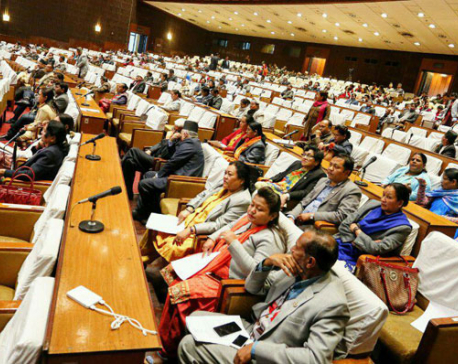
Constitution Amendment Bill (2nd amendment)-2073 being tabled in parliament today
KATHMANDU, Aug 16: The Constitution Amendment Bill (second amendment)-2073 is being tabled in the Legislature-Parliament today. ... Read More...
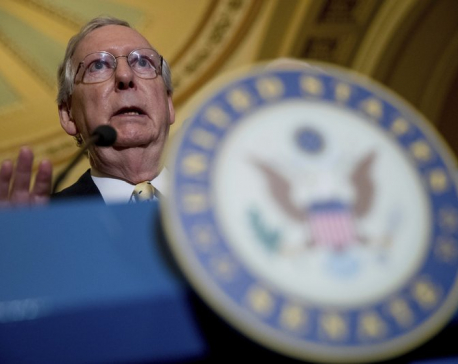
5 reasons why health care bill would fail, 3 why it may not
WASHINGTON, July 24: There are many reasons why the Senate will probably reject Republicans’ crowning bill razing much of former President... Read More...
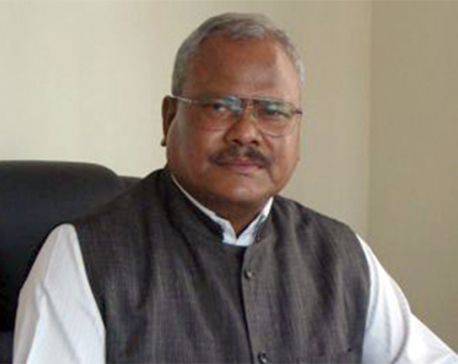
'MPRF-D to register own amendment proposal on constitution amendment bill'
KATHMANDU, Jan 7: Chairman of the Madhesi People’s Rights –Democratic (MPRF-D), Bijay Kumar Gachchhadar, said that his party would register... Read More...

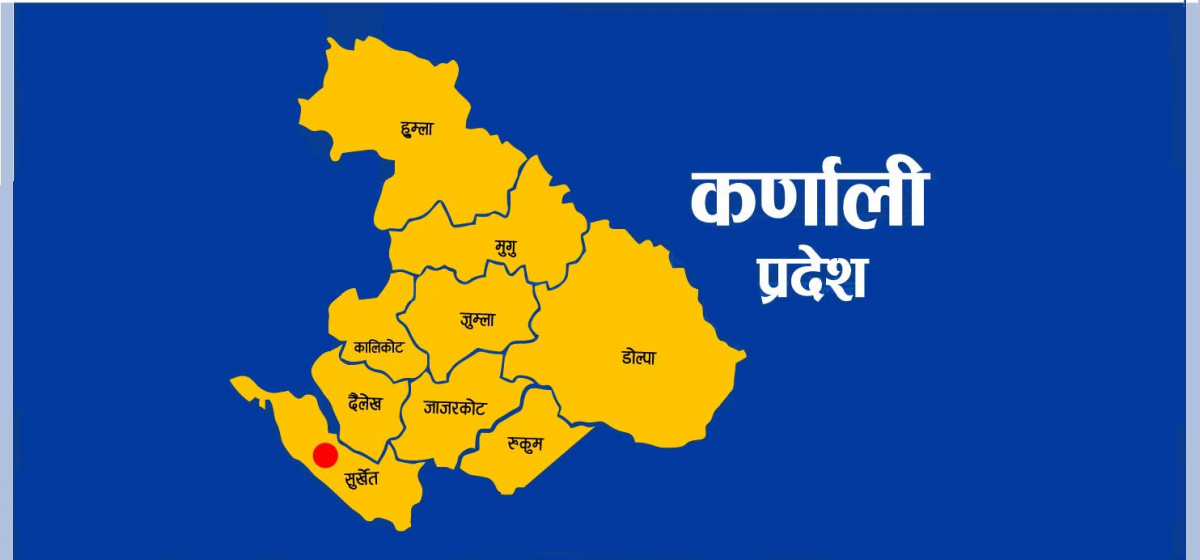

Just In
- Universities will be free from partisan interests: Education Minister
- CIAA files cases against five, including ex-chief of Social Development Office Dolpa
- Kathmandu witnesses surge of 2,000 new commercial bank branches in six years
- Crops and livestock special production zone scheme implemented in 10 districts of Karnali
- Rising food prices cause business slowdown
- Madhesh Province Assembly meeting postponed after Janamat’s obstruction
- Relatives of a patient who died at Karnali Provincial Hospital 6 days ago refuse body, demand action against doctor
- Khatiwada appointed as vice chairman of Gandaki Province Policy and Planning Commission




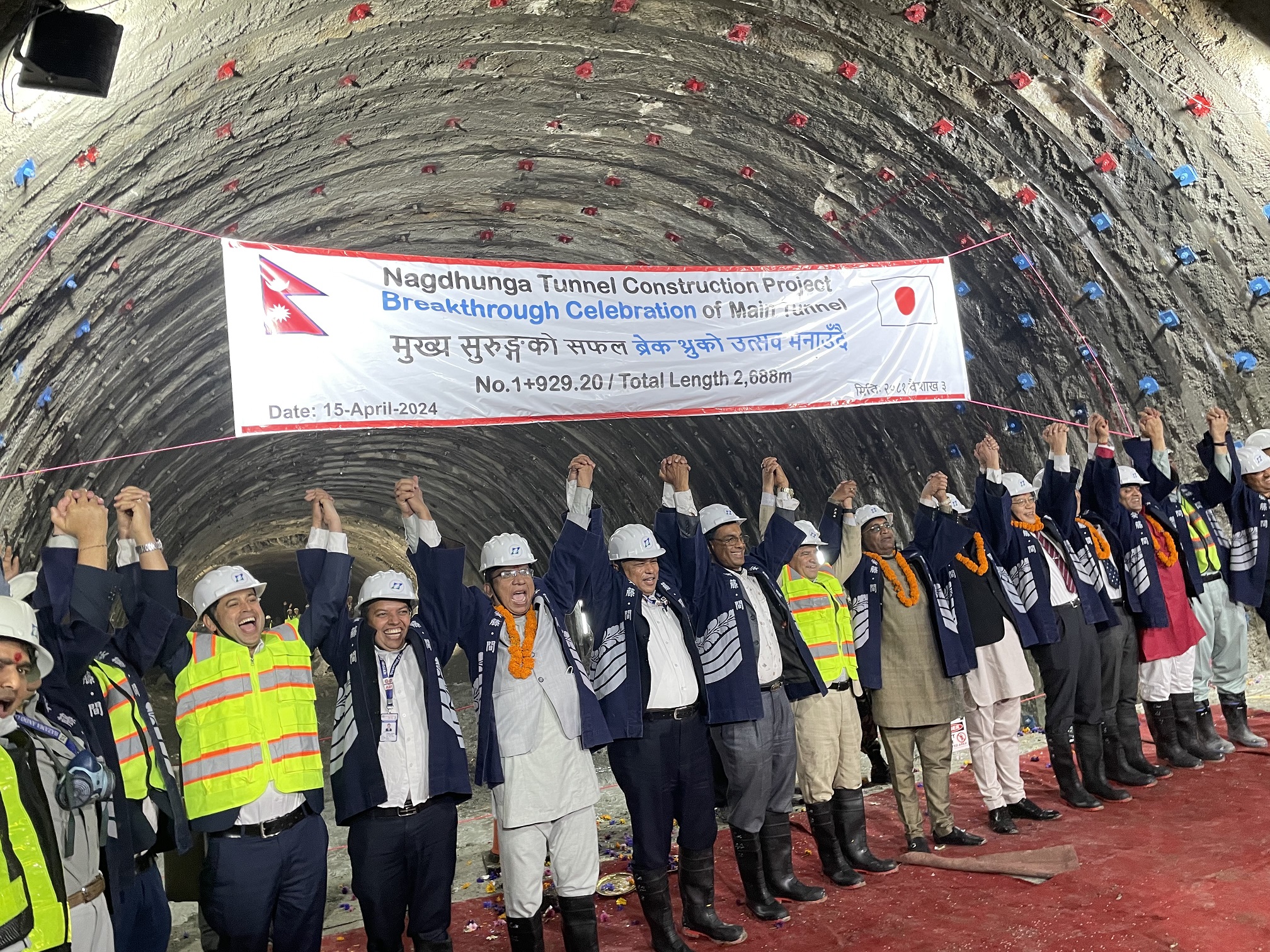



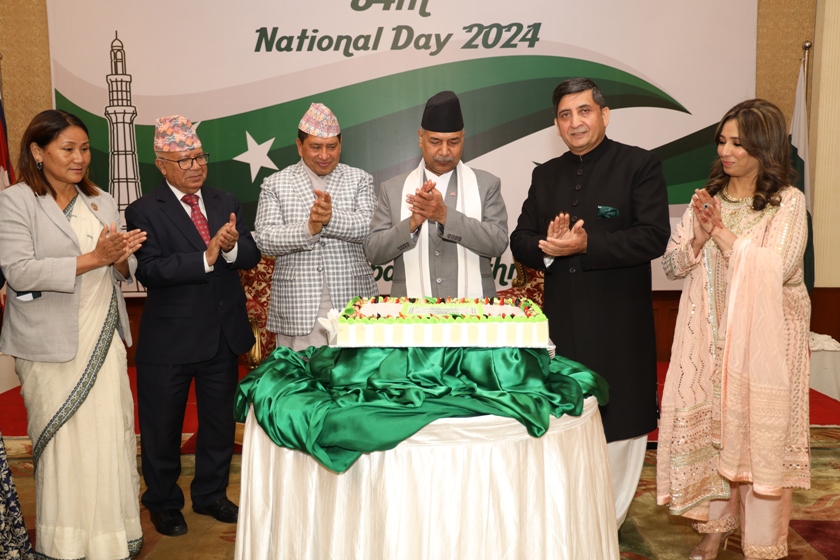

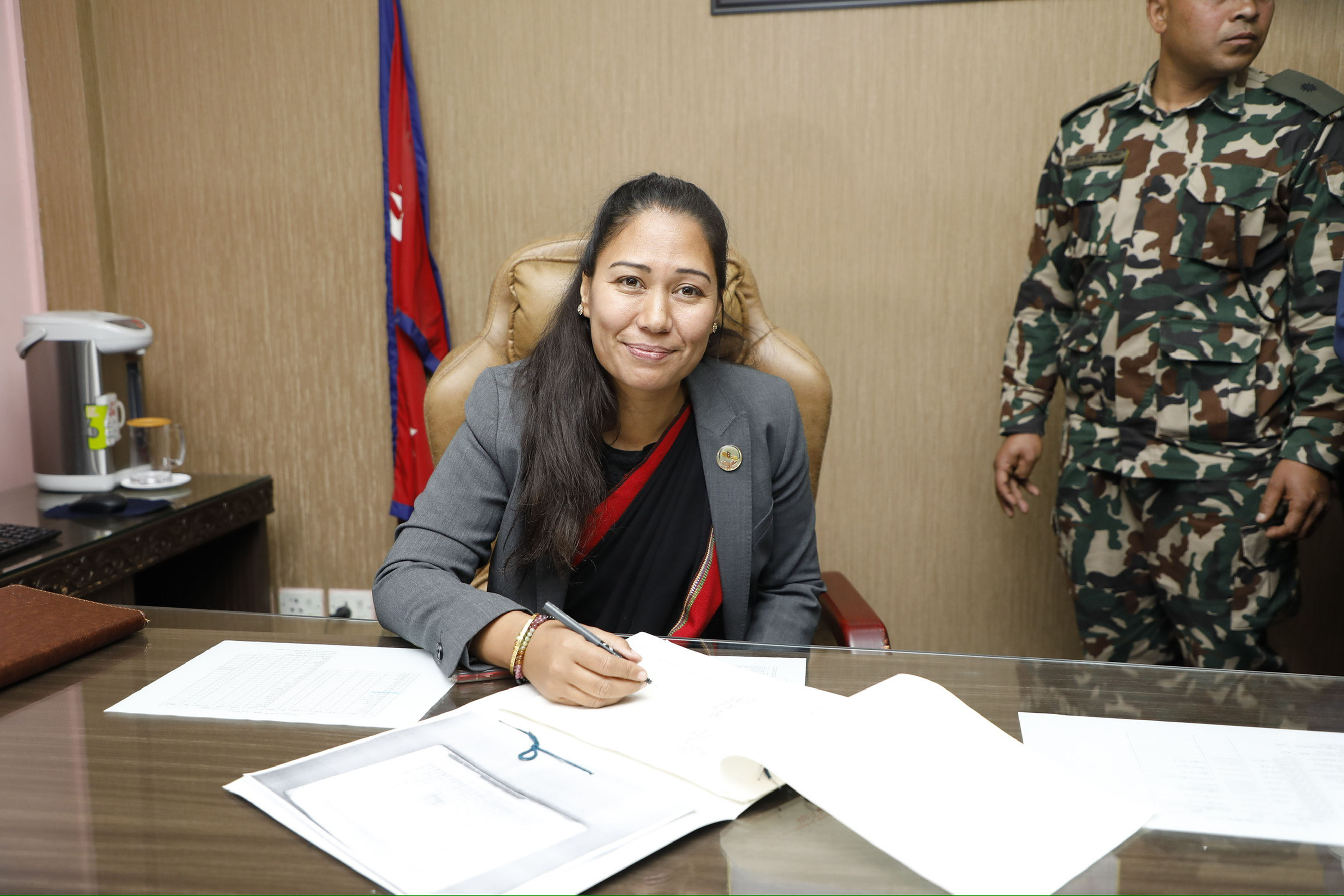
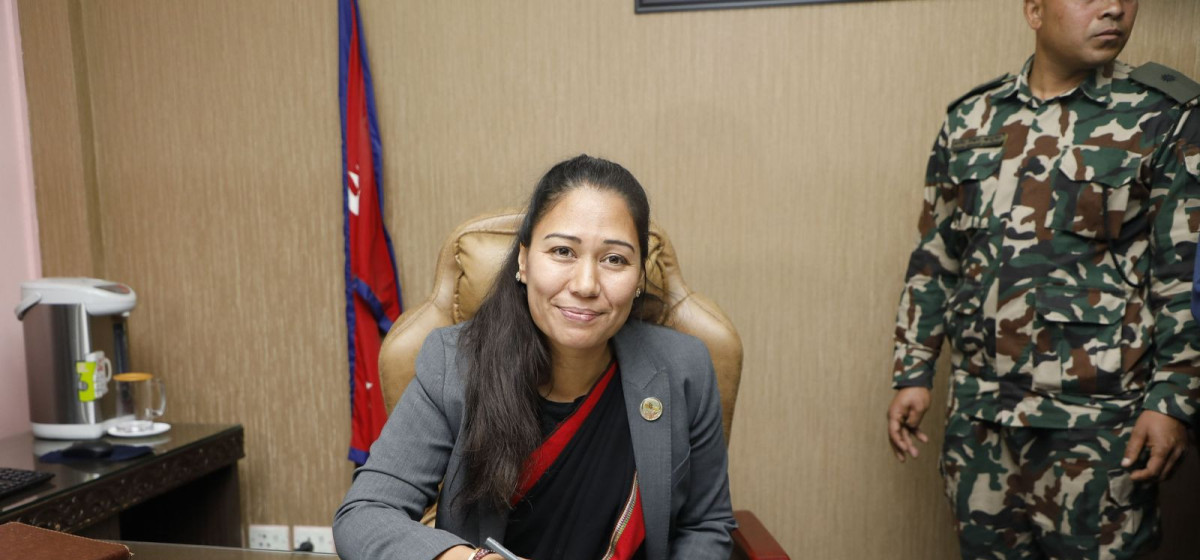
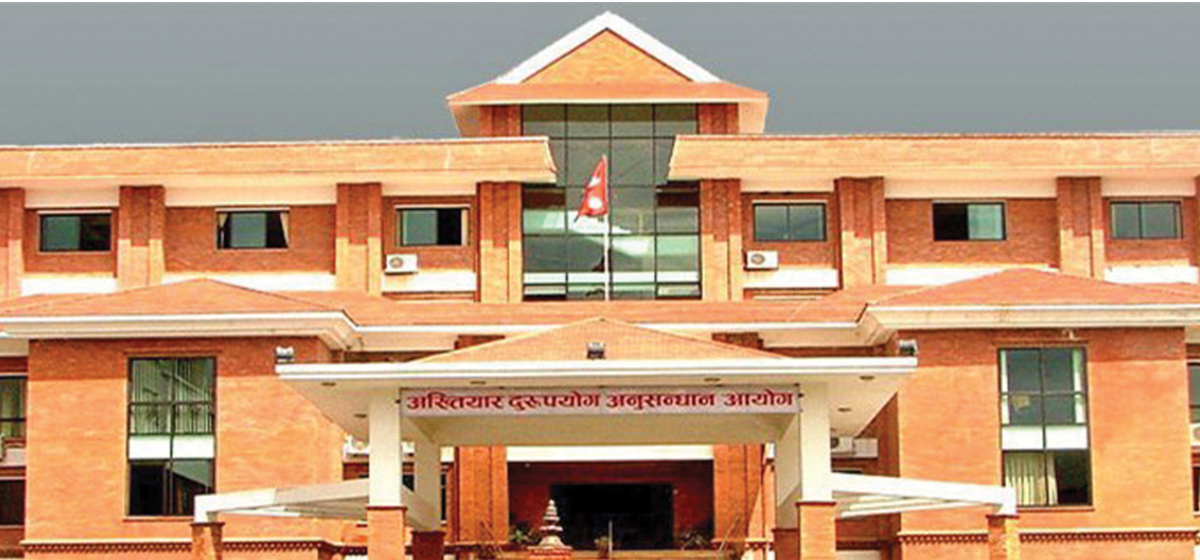

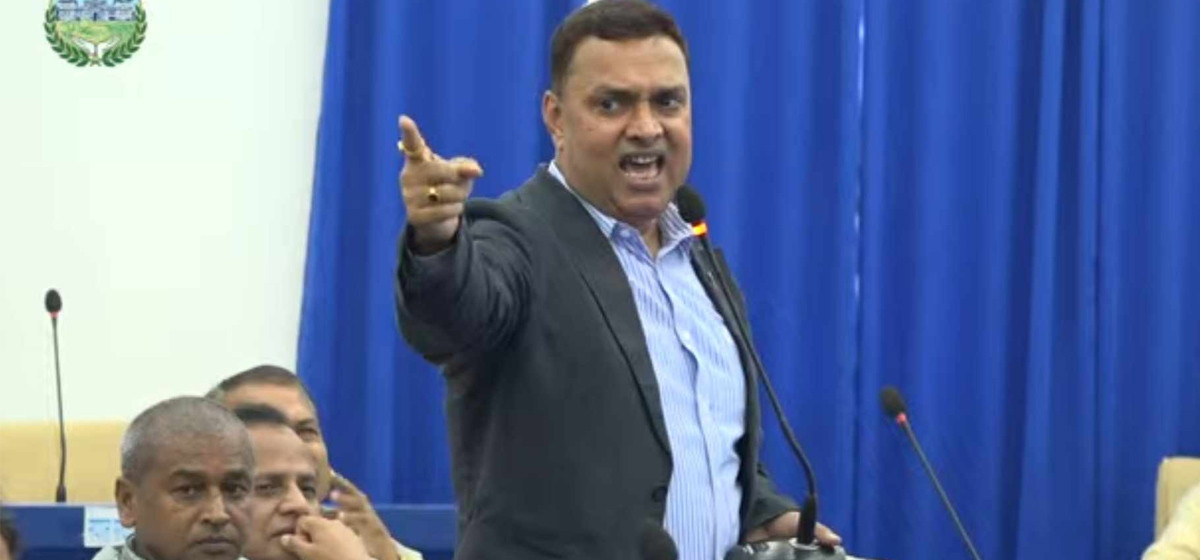
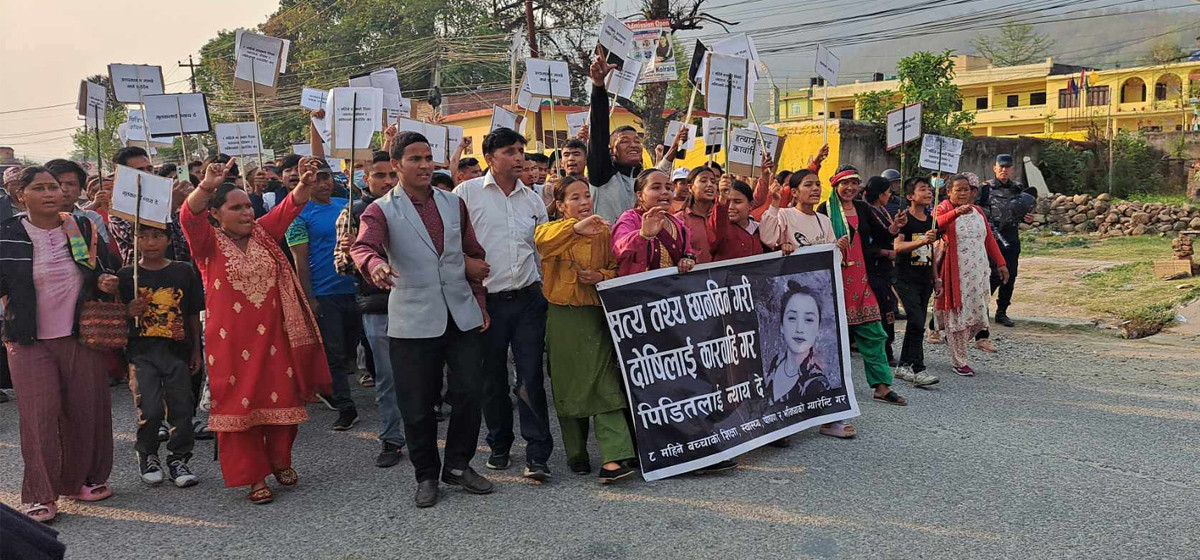
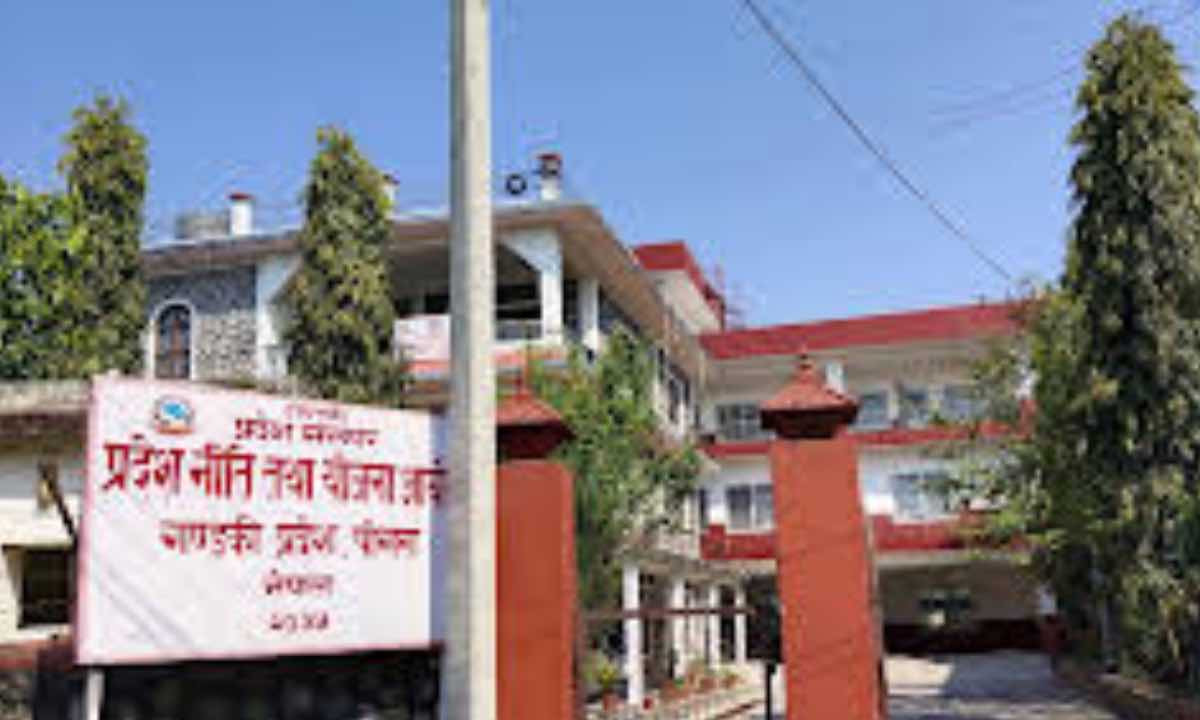
Leave A Comment